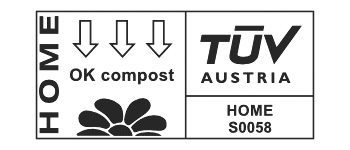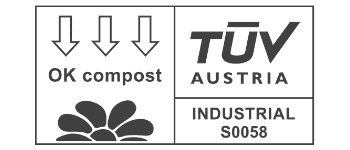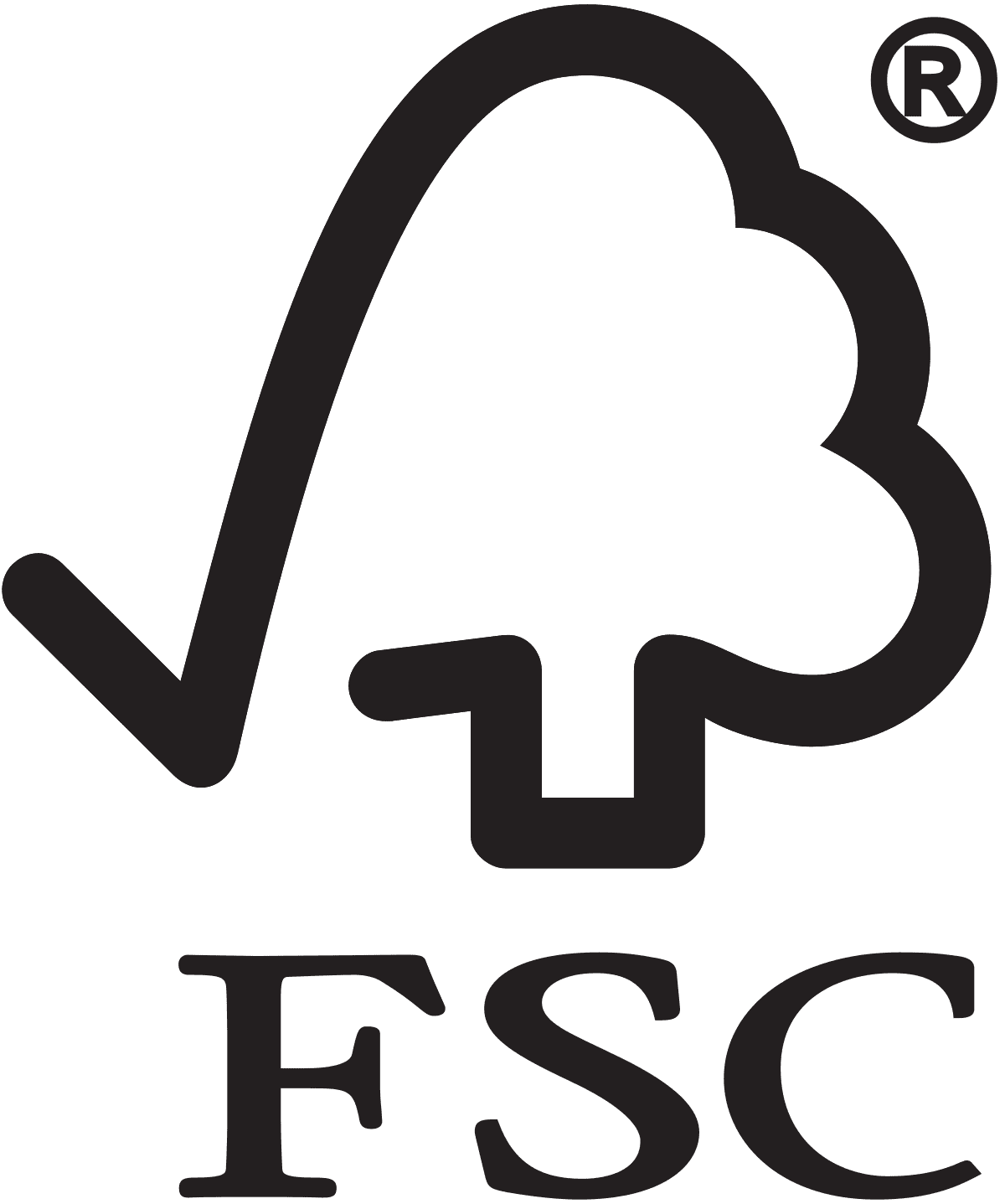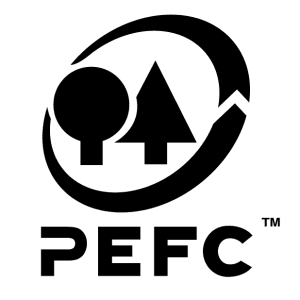Turn away from plastic and cotton with our high-performance, and natural alternatives.
Biopolymers
All inks used by BioApply are certified to not to harm the environment or pollute the soil. However, for environmental reasons, BioApply recommends that printing is limited to a maximum of 30% of the printable area. The feel of the biopolymer solutions is soft, pleasant and differs from plastic in its very natural look. Committed to a sustainable approach, BioApply is committed to always maximising the biosourced content.
Material recycling: compostable bioplastics – composting and methanation processes.
Compostable bioplastics are polymers specifically designed to break down into their base atoms – hydrogen and carbon – upon contact with the material.
Decompose into their basic atoms – hydrogen and carbon – upon contact with decaying organic matter, without creating toxicity. This can be done either by composting or by biomethanisation (production of methane before composting). The energy contribution of compostable bioplastics is moderate; their contribution comes mainly from their contribution to the qualitative and quantitative collection of organic, household or industrial waste.
Wooden fibre
The wood used is certified as sustainable and comes from Central and Western Europe, exclusively from sustainably managed forests. In the production process, the wood is shredded into chips to extract the cellulose. This is processed into a tough and elastic material that is used and woven to make nets.
Our cellulose is certified as carbon neutral. The wood fibre solutions are 100% renewable, recyclable and compostable.
The feel and look is similar to cotton, although wood fibre is clearly superior in terms of ecological balance.
Material recycling: wood fibre solutions – textile sector
Lyocell TENCEL or Modal TENCEL solutions from BioApply are textile solutions Their initial purpose is to be used repeatedly and long-term. At the end of the process, BioApply’s textile products are recycled in textile mills to preserve the fibres as much as possible.
PLA
PLA is a fully biodegradable thermoplastic polymer that uses renewable raw materials. PLA is of plant origin and is mainly derived from corn starch. This material is also certified “food contact”.
Material recycling: PLA solutions – thermal chain
Polylactic acid is a compostable biopolymer that enables the development of disposable solutions in particular, but which can also be recycled.
Rebag is +95% bio-based and can be used and washed many times. Although recyclable and compostable, the infrastructure for recycling Rebag is not yet fully developed.
not yet fully developed. Therefore, we recommend thermal recycling for its end of life. BioApply is working closely with BioMasse Schweiz and its members to further develop this inventory.
In the future, several solutions are conceivable for PLA:
- A “PET” approach with dedicated collection and recycling.
- A “compost and methanisation” approach provided that the industrial fleet evolves and products with a risk of confusion are gradually banned.
- Recycling via the PLA value chain.
Paper treated with plant wax
As this technology can be tailor-made, it can be combined with PLA,
especially when, for example, a window is added to a bag. This solution is TÜV OK Home compost certified.
Material recycling: BioPaper solutions – recycling path for paper cellulose (preferred) or compost.
As the recycling value of paper is mainly in the fibre, the appropriate recycling route is the paper route by default. To ensure that BioApply products are recyclable in this value chain, we exclude solutions that have been co-extruded with plastic film or chemically treated with fossil additives. For our solutions intended to come into contact with food, we also guarantee perfect compostability – certified by the relevant bodies such as TÜV – so that even paper packaging contaminated with food residues can be recycled.
Mixture of recycled paper and grass
At BioApply, we guarantee a composition without any solvents, which makes the product 100% recyclable and biodegradable.
The material used to make BioGrass is a real innovation; it is made of recycled kraft
and dried grass (+25%) it is a real ecological alternative to standard fuel bags.
The widely used kraft paper carrier bags are still too often not recycled, not certified or made with solvent-based inks and adhesives.
Material recycling: BioPaper solutions – recycling path for paper cellulose (preferred) or compost.
As the recycling value of paper lies mainly in the fibre, the appropriate recycling route is, by default, the paper route. To ensure that BioApply products are recyclable in this value chain, we exclude solutions that have been co-extruded with plastic film or chemically treated with fossil additives. For our solutions intended for food contact, we also guarantee perfect compostability – certified by the relevant bodies such as TÜV – so that even paper packaging contaminated with food residues can be recycled.
We guarantee our raw materials in accordance with the best quality seals in the industry.


OK Compost HOME
OK Home Compost is an environmental seal. The seal states that the products do not contain harmful substances and can be reduced to home compost within six months and without residues of heavy metals.


OK Compost INDUSTRIAL
Packaging and products with the OK compost INDUSTRIAL logo offer a guarantee that they are biodegradable in an industrial composting plant. This applies to all their components, including printing inks and additives.


FSC
The FSC has a solid set of forest management and chain of custody standards to ensure that FSC-certified products comply with the basic principles and criteria.


PEFC
This programme aims to improve the use and protection of forests at an international level. PEFC Switzerland guarantees that wood and paper products come from sustainably managed forests.
OekoTex
With the OekoTex label, consumers can be guaranteed in a simple and standardised way that they are buying a product that is not harmful to health or the skin.


Respect Code
Respect-code enables brands to manage their supply chains and provide information about the origin and production steps in a simple, intuitive and secure way. It gives consumers the opportunity to be fully informed before, during or after their act of purchase.